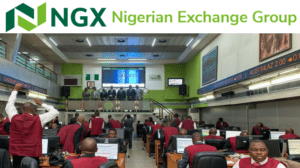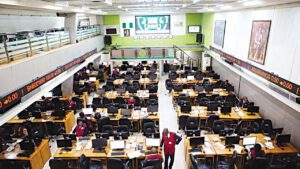Equities, naira crash setting up weak Q2 outlook
Activities in Nigeria’s financial markets (equities and money markets) opened with bearish sentiments in the first trading day of the second quarter (Q2), setting up a poor growth outlook which financial analysts have predicted may likely turn out worse than the first quarter (Q1) of 2023.
At the foreign exchange market, Nigeria’s currency, the Naira depreciated against the dollar on Monday, April 3, exchanging for N463.50 at the investors’ and exporters’ window.
The rate represents a significant fall of 0.46 per cent or N2.12 in one trading session when compared to the N461.38 it exchanged to the dollar at the close of business on Friday, March 31.
The open indicative rate closed at N461.80 to the dollar on Monday. A spot exchange rate of N466 was used for trading within the day before it settled at N463.50. The spot exchange rate is determined instantly.
A total turnover of US$ 175.40 million was traded at the official Investors’ and Exporters’ window. At the parallel market, the greenback exchanged between N745 and N750 to the dollar. The exchange rate for the Euro to Naira traded at N802 as traders claimed they bought at about N786 per Euro, and the British Pound Sterling exchanged for N925 per Pound.
Dollar had strengthened against the Naira on April 2 and 3rd, rising from N744 per Dollar on Friday, March 31, to close at N750 per Dollar on Monday. Between last Friday and Monday, the Naira depreciated by 0.8 percent or N6.
In a similar development, the equities market opened the quarter with a 9 basis points or 0.1 percent decline in the benchmark All Share Index to close at 54,184.34 points while market capitalisation which measures the value of traded equities dipped by N26.2 billion to N29.5 trillion.
The losses were largely driven by losses in the shares of International Breweries (-6.7 per cent), ETI (-3.1 per cent), and CUSTODIAN (- 8.9 per cent). As a result, the year-to-date (YTD) return moderated to +5.7 per cent down from +5.8 per cent while the month-to-date returns settled at -0.1 percent.
Activity level weakened as volume and value traded declined 47.6 per cent and 35.37 per cent to 292.6 million units and N2.4 billion respectively, and exchanged in 4,408 deals. Fidelity Bank was the most traded stock by volume and value at 79.73 million units and N426.80 million, respectively.
In terms of sectoral performance, the Insurance (+0.3 per cent) index was the sole gainer for the day as the Oil & Gas (-0.3 per cent), Consumer Goods (-0.3 per cent), and Banking (-0.3 per cent) indices declined while the Industrial Goods index closed flat.
“We expect a not too good performance from Q1. But Q2 is likely to be worse because inflation pressure, both exchange rate and interest rate are still trending higher, and the likelihood of the removal of fuel subsidy will further aggravate these factors.
“I don’t see the second quarter of this year returning positive growth figures because the indices to drive a positive growth are not here yet,” a financial analyst at Proshare Nigeria, Teslim Shitta-Bey said.
Immediate past Director General of the Lagos Chamber of Commerce and Industry (LCCI) and the promoter of the Council for the Promotion of Private Enterprise (CPPE), Muda Yusuf expressed a similar view.
“We expect a not too good performance from Q1. Q2 is likely to be much the same because of the uncertainties in the economy,” Yusuf told our correspondent.




